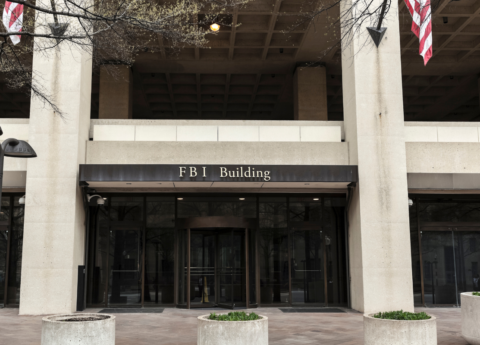Prosecuting children in adult court leads to harsher consequences and harmful long-term outcomes, both for the children and the greater community. Yet Senate Bill (SB) 20 would make it easier to prosecute children as adults for certain offenses. Specifically, SB 20 requires children to be tried as adults in some instances when there is an allegation that a gun was involved in the commission of a crime. Not only is this harmful policy not supported by research, it also reverses a positive change enacted just three years ago that deleted an automatic transfer provision and replaced it with language allowing the juvenile court judge to decide whether the case should be transferred. SB 20 passed the Senate last month and was heard in the House Judiciary Committee last week, where the transfer language was amended.1 It now awaits a floor vote in the House.
Children charged with gun-related offenses to be prosecuted in adult court
Cases involving a child charged with a crime are handled in juvenile court with some exceptions that allow a case to be transferred to adult court. Under current law, kids who meet the criteria set out in SB 20 can already be prosecuted as adults, but there is no automatic transfer to adult court based solely on allegations in a complaint.
Instead, the county attorney, in consultation with the Commonwealth’s attorney, must file a motion to have the case moved from juvenile court to adult court. This motion prompts a hearing at which the judge will consider the following factors:
- The seriousness of the offense,
- Whether the offense was against a person or property, with greater weight given to crimes against people,
- The maturity of the child as determined by his environment,
- Prior record of the child,
- Best interest of the child and the community,
- The prospects of adequate protection of the public,
- Likelihood of rehabilitation of the child by use of procedures, services and facilities currently available to the juvenile justice system,
- Evidence of child’s involvement in a gang,
- Whether the child has a serious intellectual disability, and
- Whether the child used a firearm in the commission of the offense.
If the judge finds that two or more of the factors favor transfer, the child may be transferred to Circuit Court and tried as an adult.
SB 20 still requires a motion by the county attorney after consultation with the Commonwealth’s attorney that the child be transferred, but it removes the discretion of the district court judge to evaluate the factors set forth above in deciding whether to transfer the child. Instead, if the judge finds that the child is 15 years of age or older, and was charged with a Class A, B or C felony, in which it is alleged that a firearm (whether functional or not) was used by the child in the commission of the offense, then the case must be transferred to adult court.
Once the case is transferred to adult court, SB 20 allows the Commonwealth’s attorney to transfer the case back to juvenile court if he or she believes it is in the best interest of the public and child to do so.
Language was added during the House Judiciary Committee hearing that also allows the Circuit Court judge to send the case back to juvenile court if that court decides that “less than two” of the ten factors listed above favor keeping the child in adult court — which practically-speaking means that only one, or zero, of the factors from the list being met would allow the child to stay in adult court. On its face, this language seems to add judicial discretion, but because use of a firearm in commission of the offense is one of the factors that resulted in the case to be transferred to the Circuit Court, one of the factors will always be met, calling into question whether this language adds any additional discretion at all.
Finally, in any case where a child is prosecuted as an adult, that child is entitled to a resentencing hearing when he or she reaches age 18. SB 20 provides that any child transferred under the new factors (15 or older, Class A, B or C felony, and allegations the child used a firearm) cannot be given probation or conditional discharge at that resentencing hearing. This means the child will have to serve their entire original sentence unless they are paroled by the Parole Board when eligible, regardless of whether a judge believes they are a good candidate for early release.
Transfer to adult court is harmful for children
Our law should not allow the transfer of children to adult court at all, as research tells us that it is harmful – both to the children who are transferred and to the greater community. Children will face harsher consequences in the adult system, and research has been clear that harsher penalties are not a deterrent for violent crime. One study from Florida found that children who were prosecuted as adults were 34% more likely to commit additional felonies compared to their peers who stayed in the juvenile system.
Additionally, living with a felony conviction carries its own host of collateral consequences that make it more difficult for kids to succeed. It can negatively impact educational opportunities, housing, employment, health and economic mobility. Children who remain in juvenile court have more opportunity to keep their records completely sealed or more quickly expunged than those prosecuted as adults.
This change in the transfer process, like many other areas of the juvenile justice system, will disproportionately impact Black children, who last year made up only 11% of the statewide population but were 22% of juvenile complaints filed and a shocking 45% of juveniles prosecuted as adults.
Claims about a juvenile crime wave are not supported by data
In SB 20’s hearing before the Senate Veteran’s Military Affairs and Public Protection Committee, the sponsors cited rising juvenile crime as motivation for bringing the bill. While each act of violence against a person or property is concerning, there is not evidence of a juvenile crime wave in Kentucky, despite media reports to the contrary.
The latest data shows that violent crime in general is down in Kentucky and across the country after a temporary rise spurred by factors related to the pandemic. More specifically, juvenile violent crime is also down.
Complaints in the juvenile system did rise in 2023, but only slightly from the previous year, and most complaints were for misdemeanor offenses, which are not offenses this bill would apply to.
Many lawmakers have also amplified the antiquated “super predator” narrative, arguing that children involved in the system today are more dangerous and commit more serious offenses than in years past. But part of the reason a larger share of children in the system have committed violent offenses is that reforms have intentionally diverted lower-level offenders from going into the juvenile justice system in the first place.
SB 20 fails to address the underlying issue of gun violence and youth access to firearms. While teens and young adults are the demographic most likely to be charged with violent offenses, this is not a new development. Locking more children up for longer, as SB 20 seeks to do, fails to address the root causes of any kind of violence.
To address those root causes and decrease access to guns, the General Assembly should invest in community programs that give children and teens access to positive activities and coping skills, and reform the state’s gun laws.
Our laws should not allow children to be tried as adults at all, but since we do have these provisions, there should be multiple safeguards built into the system. The decision to transfer a child to adult court should be made by a judge, on a case-by-case basis, considering all the facts and circumstances presented in that case. It should not be made by the General Assembly based solely on charges, or because of the opinion of prosecutors. Entangling more children in the adult court system only makes it more likely they will end up incarcerated as adults. SB 20 is a harmful measure that will not lead to safer communities.




